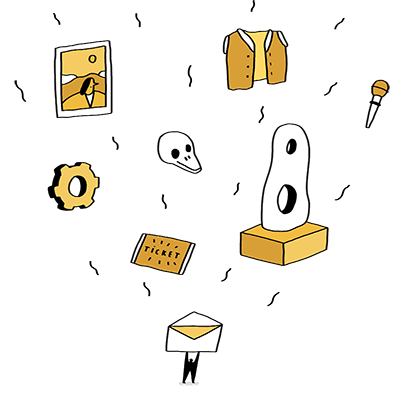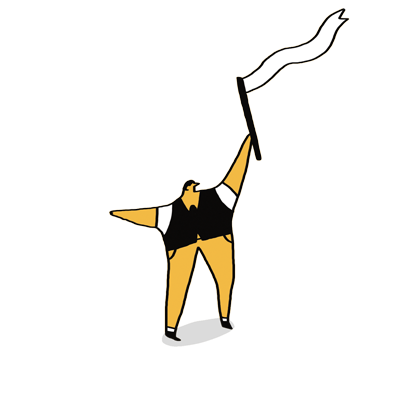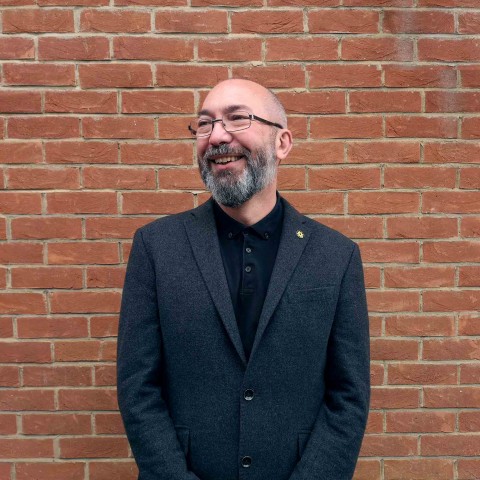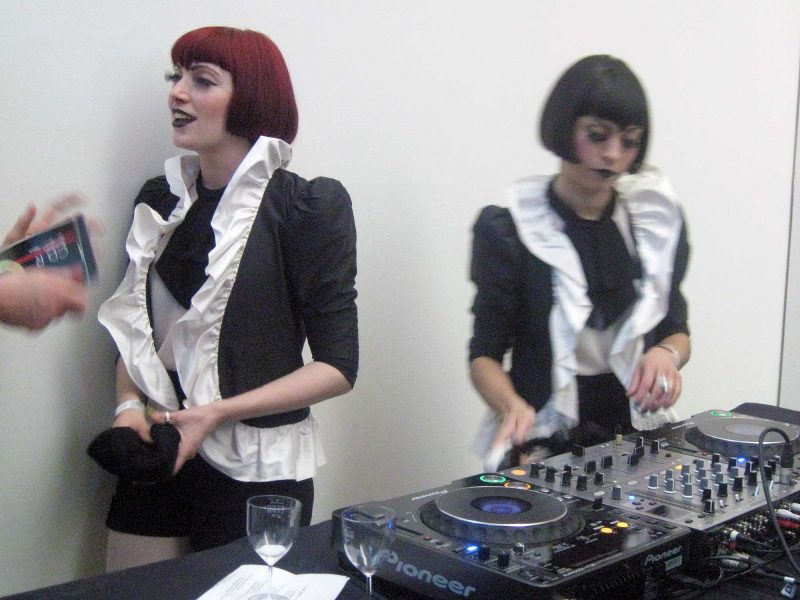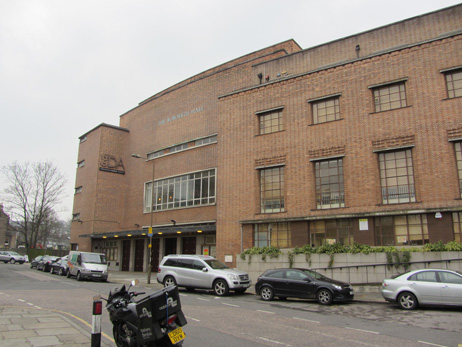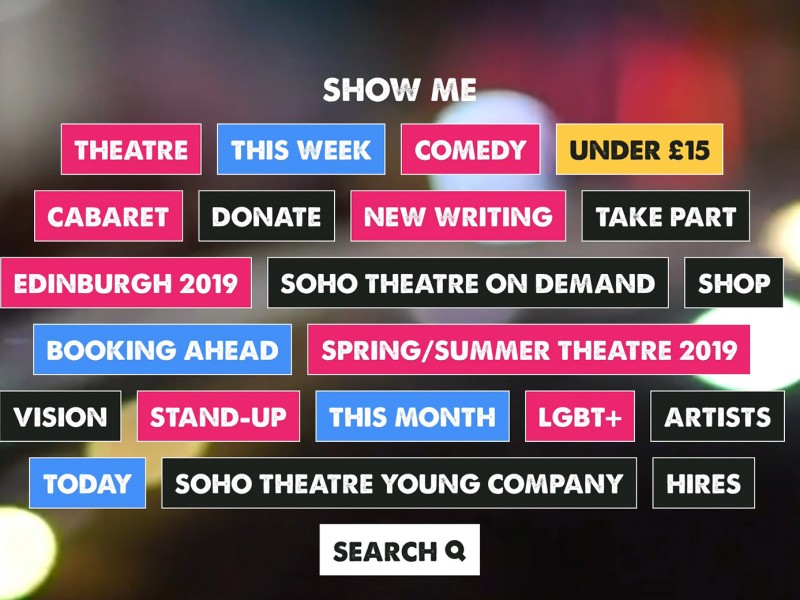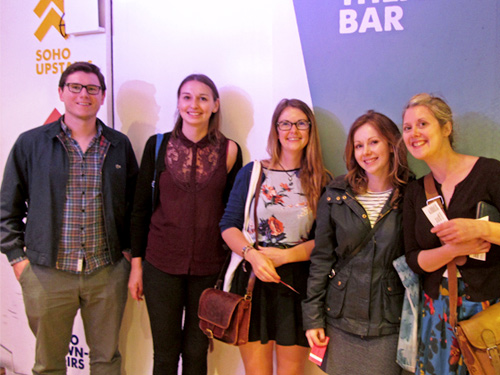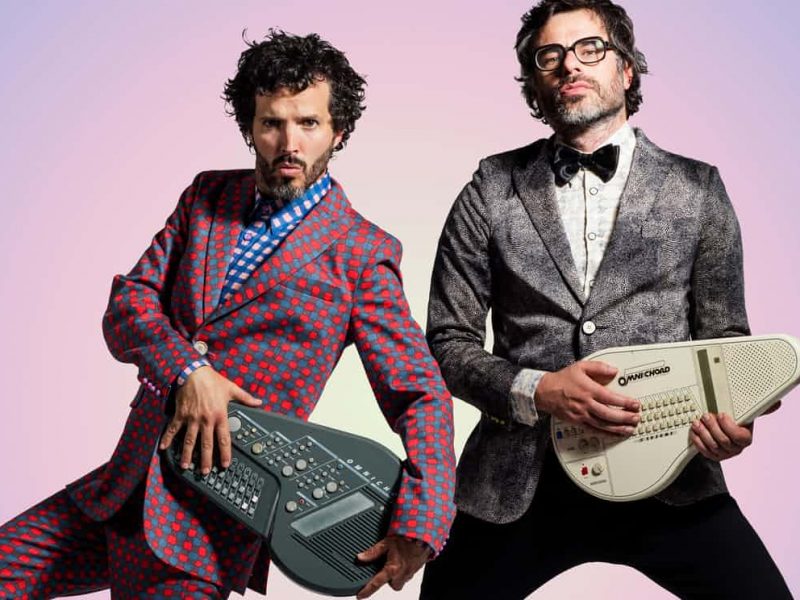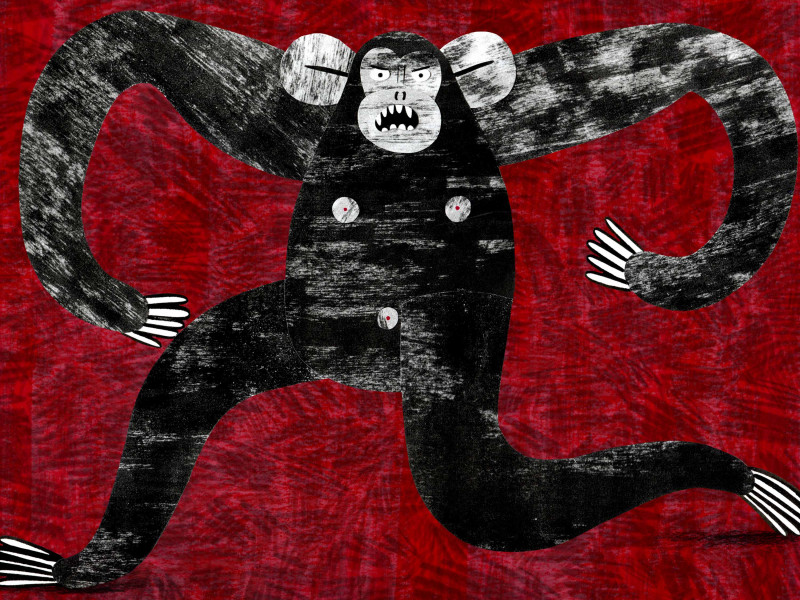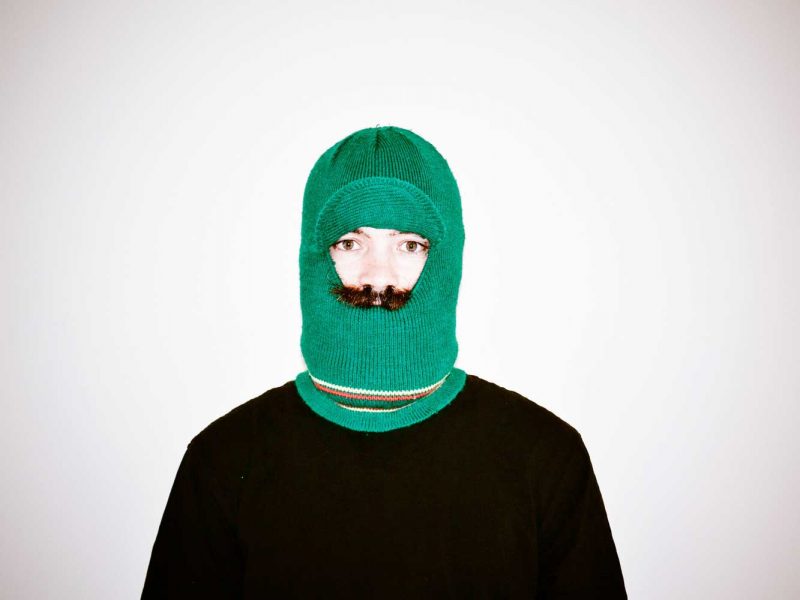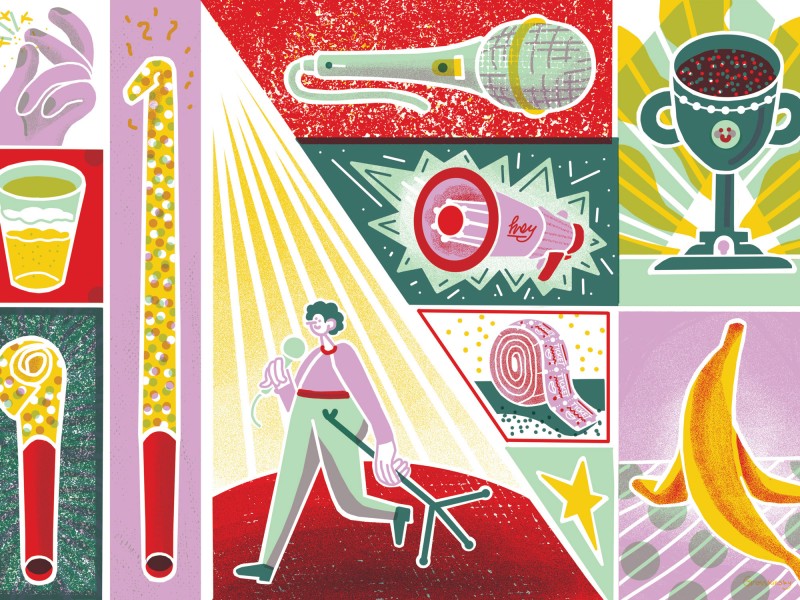In his first one-man show for 15 years, David Baddiel examines issues of celebrity through the skewed lens of his own life.
David Baddiel’s Fame: Not The Musical
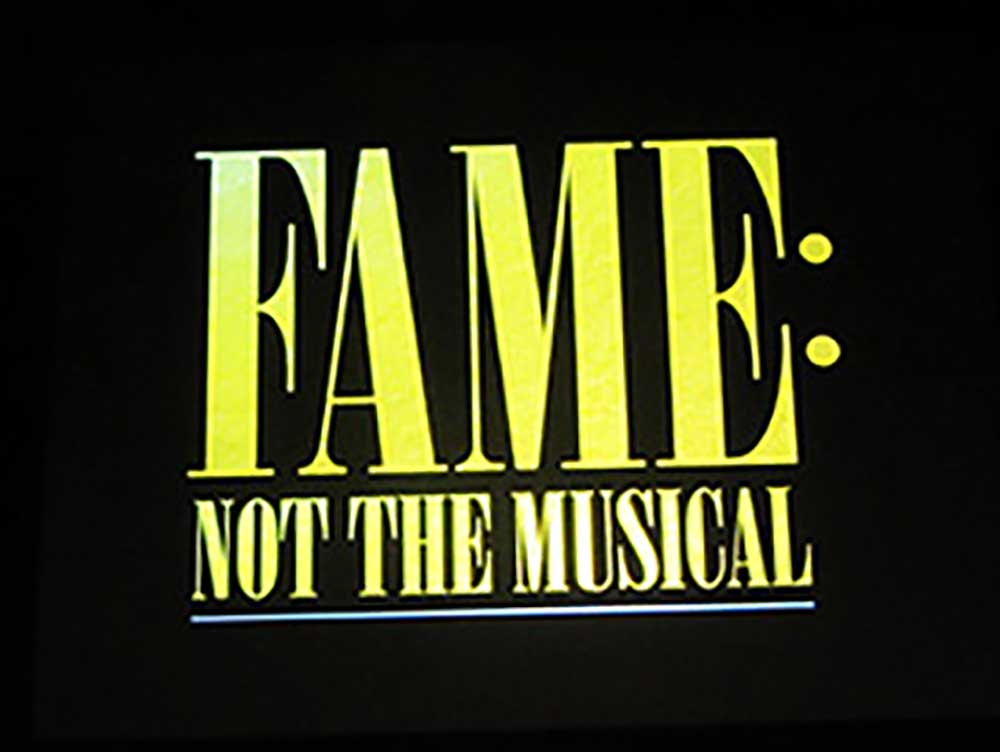
Intimate is the perfect word to describe the Menier Chocolate Factory. On a Saturday afternoon, filled with an audience that made me feel like a whipper-snapper, a scruffily-dressed, middle-aged man wandered onto the tiny stage and we all clapped politely.
there was a strange, meta moment after the interval where, in his show about fame, he made me momentarily famous by reading my tweet about taking a photo of the ‘no photography’ sign.
Projecting forward from the early nineties, in the moment where he arrived on a circular platform, flying in, over the Wembley audience on an aerial slide, it would be difficult to predict this event. But then, who would have imagined that one of the leaders of the ‘new rock ‘n’ roll’ (we can blame Janet Street Porter for coining that expression) would achieve even higher levels of fame by sitting on a sofa talking about football, and then recording the anthemic phenomenon, Three Lions, with Frank Skinner and Ian Broudie?
There were some similarities to those stadium gigs. Baddiel was still dressed in jeans and a t-shirt, and David Bowie’s Fame blared from the speakers, but there was no dry-ice or strobe lighting. He was wearing a radio mic but it wasn’t to allow him to prowl the vast stage and runways, it was so his hands were free to click through his slides and video clips.
The quiet matinée audience took a while to warm up, I thought we were in for an awkward moment when the ‘C’ bomb was dropped a couple of minutes in. But that actually seemed to be the moment when the spell was broken and people settled into enjoying themselves.
This is Baddiel’s first solo show for 15 years, as he reminds us in his opening remarks. But he’s been far from quiet in that time, he’s published four novels and a screenplay, he’s hosted numerous radio and TV shows, and he’s been bringing up a family with his partner Morwena Banks (all of whom appear in this candid look at his life).
This performance is part illustrated lecture and part stand-up. At the heart of the show is Baddiel’s third way of fame: his narrative is not the decadence of stardom, or the self-destruction of those who are burned by the spotlight. He is just a moderately famous bloke (less famous than he once was) whose life is punctuated by awkward encounters, made worse by people recognising him and projecting their preconceptions onto him.
In fact, many of the funniest anecdotes come from people mistaking him for someone else because, as he says, he has an archetypal Jewish face (which he demonstrates by putting on a cap and transforming in Steven Spielberg). His stories about Andrew Lloyd Webber mistaking him for Ben Elton are hilariously awkward; I do hope they are true.
Baddiel weaves many darker topics into the mix, often using examples of his own embarrassing behaviour to draw analogies to the most extreme and objectionable behaviour of others (such as the vile lack of empathy shown by anonymous tweets and trolling).
He quotes Updike, “Celebrity is a mask that eats into the face” to explain how people fix their notion of how a celebrity should be. The person behind that celebrity is forever condemned to live up (or down) to that moment in time. In Baddiel’s case, he believes he is forever cast as a laddish, loud-mouthed ‘north-Londoner’ (insidious newspaper shorthand for ‘Jew’).
In one self-mocking moment, he showed a clip of Stewart Lee. Lee was performing a song about Russell Brand’s wedding, each chorus was a list of celebrities with Baddiel the bathetic counterpoint to ‘real’ stars. This clip was the hook that allowed Baddiel to talk about paparazzi intrusion, about the global hunger for gossip and about how ridiculous he looked when his was the only photo that emerged in the press when he and his daughter snuck out of Brand’s wedding party to ride a camel.
But showing that clip made me think more about the construction of the show. Lee is a master of de-constructing the joke to show us how it works. Baddiel’s show works perfectly, it was beautifully constructed and conceived, written and performed with such confidence that you think the whole thing might be a facade – maybe he is actually supremely confident and assured.
Twitter features heavily in the show, Baddiel has embraced it and revels in the ambiguities it produces – the incestuous ‘pep-tweets’ of fellow celebrities, the open access that creates a false informality between strangers, the outpouring of hatred, and the power of humour to ridicule hate-filled trolls.
Before the interval, Baddiel asked for people to tweet him so he could read them in the second half. So there was a strange, meta moment after the interval where, in his show about fame, he made me momentarily famous by reading my tweet about taking a photo of the ‘no photography’ sign.

I’ve heard this show criticised as being written like a column in a Sunday paper. I struggle to see how that is a bad thing. This is a great show, often hilarious, sometimes poignant, thought-provoking but never pompous. It is well written and constructed like a really good newspaper column and I thoroughly enjoyed spending my afternoon, soaking it in.
